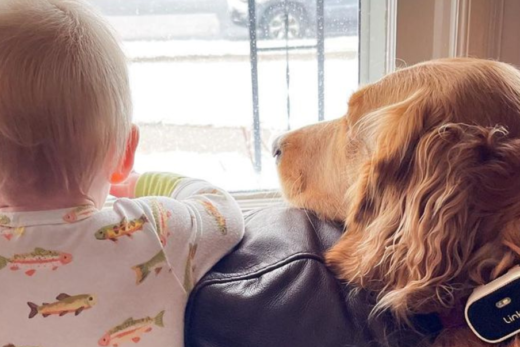Dog Dental Care 101 – How to Care For & Clean Your Dog’s Teeth
Your dog loves to give wet kisses—but their doggie breath is too terrible for that kind of affection. An oral hygiene routine can help.
Dogs need regular dental care. Poor oral hygiene is linked to a host of canine health issues from gum disease to kidney and liver disease. Brushing your dog’s teeth won’t just improve their health and lifespan; it will also freshen their breath so those wet kisses won’t send you running in the opposite direction.
You can practice good oral hygiene at home with regular tooth brushing and dental treats and toys, but scheduling regular dental cleanings with the veterinarian (a great reason to invest in health insurance!) is also important to keep their teeth and gums looking great.
Help! My Dog Has Bad Breath
Your dog drinks from the toilet, steals snacks from the trash and licks, well, everything, so it’s no surprise that their breath is bad. Bad breath is common. In fact, a 2021 report found that oral health issues were the most common diagnoses in dogs—and small dog breeds were especially susceptible.
What causes dog bad breath?
A bad case of dog breath can have several causes:
Liver disease: Dogs that have bad breath along with other symptoms like vomiting, diarrhea, weight loss, lack of appetite and yellowing of the skin and eye (called jaundice) could have liver disease. Liver disease affects the ability to filter toxins and a buildup of toxins can cause bad breath.
Diabetes: Ketones, the chemicals are used to break down fats, go into overdrive in dogs with untreated or poorly managed diabetes. In addition to symptoms like weight loss, loss of appetite and increased drinking and urination, ketones can make your dog’s breath have an odd “sweet” smell.
Kidney disease: Dogs depend on their kidneys to filter toxins. Kidney disease can lead to a buildup of toxins, including urea, in the blood and that can make their breath smell like ammonia or urine.
Oral tumors: If your dog has a tumor in their mouth that becomes infected, it can lead to very bad breath.
Dental disease: Tartar, plaque and gingivitis are the most common cause of bad breath in dogs. Dental disease causes an overgrowth of bacteria in the mouth, leading to bad breath. Dog halitosis can be mild or severe, depending on the severity of the dental disease.
There are multiple dog bad breath causes and it’s important to make an appointment with your veterinarian to determine the reasons for serious dog breath and provide proper treatment.






